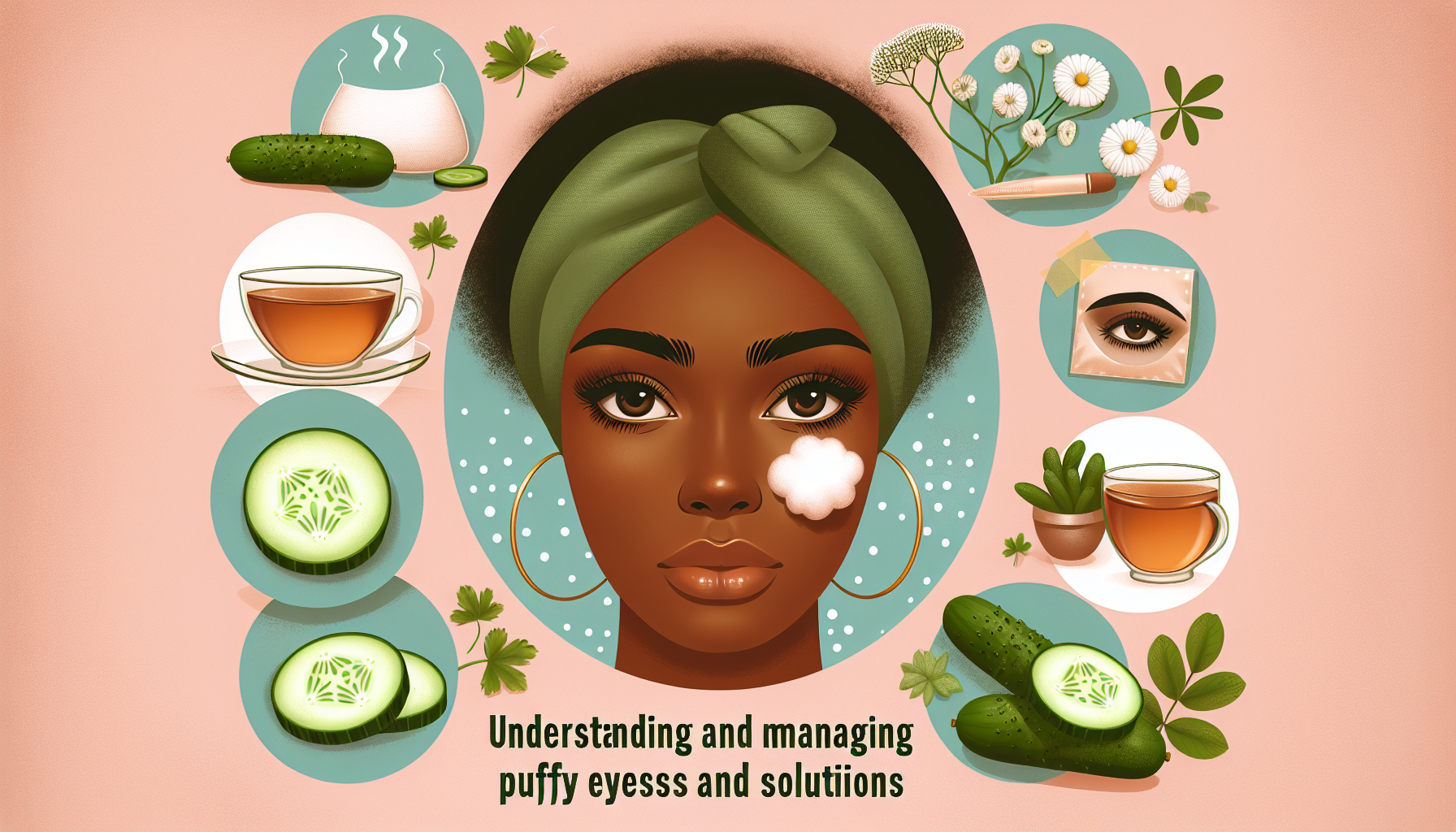Why Are Your Eyes Puffy? Understanding the Causes and Solutions
Have you ever woken up from a deep sleep only to find your eyes feeling heavy and swollen? Perhaps after a good cry or even from a simple yawn-induced tear, your eyelids felt irritatingly puffy. Our eyes are quite sensitive and can swell up for various, often unexpected reasons in our daily lives. While it's reasonable to try different remedies to alleviate eye puffiness, frequent swelling might be a subtle red flag signaling an underlying health issue. Today, let’s dive into why those pesky puffy eyes keep coming back and explore some common causes.
- Lack of Sleep
Ever wondered why a short night of rest can leave bags under your eyes? Well, here’s the scoop: "Sleep deprivation leads to elevated levels of certain hormones that cause fluid retention," explains dermatologist Anar Mikailov, MD, FAAD, co-founder of Skintensive. Additionally, "A lack of sleep decreases the lymphatic fluid available to remove toxins and waste, leading to accumulation and swelling," Mikailov continues. Sleep is when the body cleanses itself of daily waste; without enough rest, toxins build up, contributing to puffiness among other health concerns.
- Sleeping Position
It's not just about how much you sleep but also how you sleep. Crushing your face into your pillow might leave you with puffy eyes. "Sleeping face down causes fluids to pool into the face, particularly around the eyes," says Mikailov. Lying flat can also lead to puffiness due to gravity. "Propping yourself up with an extra pillow can help reduce swelling by keeping your head slightly elevated," he suggests, allowing gravity to help fluids drain away from the eye area.
- Hormonal Changes
For those who menstruate, noticing a bit of puffiness right before your period might sound familiar. "During the pre-menstrual phase, when progesterone levels are high, the body tends to retain extra fluid, which can appear as puffiness around the face, especially the eyes," Mikailov explains.
- Allergies
Seasonal allergies tend to bring itchy, swollen eyes along for the ride. If your eyes start to swell up when the first spring flowers bloom, you're not alone. "An increase in [histamine] release results in inflammation and puffiness, most commonly seen on the face," Mikailov notes.
- Dehydration
When your body lacks adequate hydration, it struggles to eliminate fluids, clinging to precious water reserves. Over time, this excess fluid retention can manifest as puffiness—commonly referred to as water retention.
- Tears
"Crying can cause the tissues around your eyes to reabsorb tears that don’t adequately drain away, leading to puffiness," says Mikailov. Wiping tears away hastily can also irritate eyelids, causing them to swell. Dermatologist Marisa Garshick, MD, FAAD, agrees: "Crying can lead to inflammation and subsequently puffiness," she states.
- Alcohol Consumption
"Alcohol retains water in the body and can lead to facial puffiness," explains Rebecca Marcus, MD, dermatologist and founder of MaeiMD. The puffiness could last into the next morning or even midday. Alcohol also disrupts sleep quality, which, as we know, significantly affects pre-existing swollen eyes. Plus, it causes inflammation, another key player in the puffiness story.
- Salt Intake
A high sodium intake can cause dry skin and make the body retain more fluids. "These changes are most noticeable around the eyes and face," Mikailov tells us. So, experts suggest cutting back on salty foods if your puffy eyes are bothering you. As board-certified dermatologist Apple Bodemer, MD, reminds us: "Processed foods can be deceptively high in sodium, meaning you might be consuming more sodium than you realize!"
- Aging
Sometimes, eye puffiness is simply a natural part of aging. As the skin naturally loses collagen and elastin, the fat pads under the eyes can lose structure and start to sag. Many complain about more prominent under-eye bags with age. Mikailov adds, "The skin around the eyes becomes thinner and loses its structural support, making puffiness more noticeable as we age."
- Thyroid Conditions
If puffiness worsens or doesn’t go away, it might be time to see a doctor. "More serious health conditions, like thyroid disorders, can lead to persistent puffiness," Mikailov says. Pay attention to swelling and track how long it takes to go down. If concerns linger, consulting a medical professional is a wise step.
- Genetics
Some people are simply more genetically predisposed to developing under-eye bags. If you find yourself in this camp, it might feel frustrating to learn that there's not much to change about these bags outside of clinical procedures. But fear not—you can take preventative measures to stop those bags from worsening with age.
In conclusion, while puffy eyes can be an annoyance, understanding the root causes can empower you to address them more effectively. Whether it's adjusting your sleep habits or moderating your diet, a few simple changes could make all the difference in helping those eyes look and feel their best!
